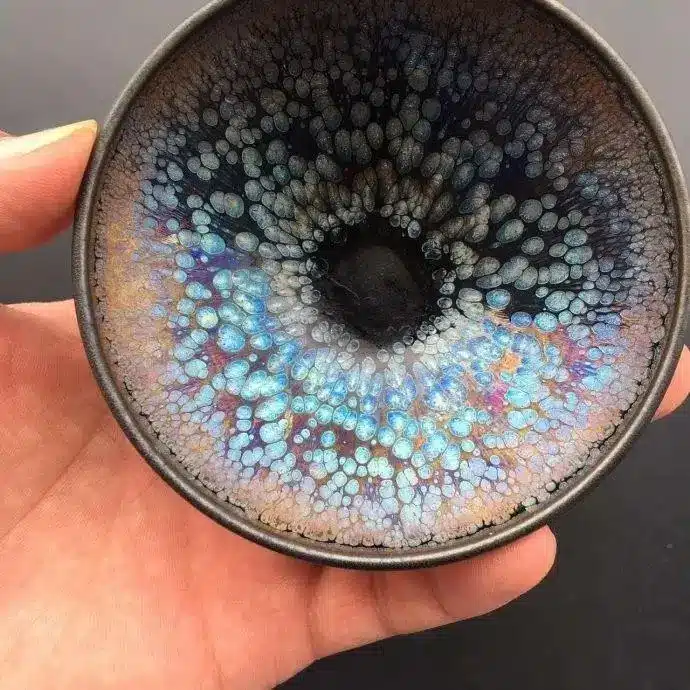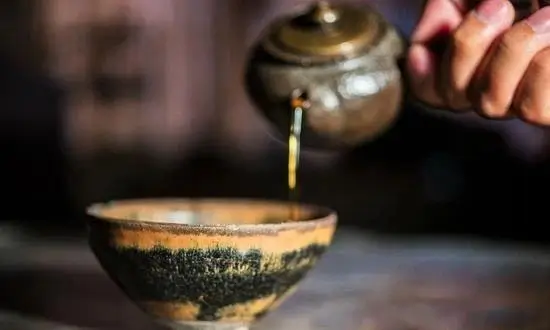The issue of “rusting” can be broken down into several factors:
Contents
1. The Spontaneous Pattern of Color
During the high-temperature firing process, if the temperature gets too high, the natural patterns on the Jian Zhan can dry out or fail to crystallize properly. This results in a color that might resemble rust, but it’s not actual rust. Alternatively, the inherent brownish spots from the firing process can also give the appearance of rust.
2. The Iron Oxide Color
Iron rust is essentially ferric oxide (Fe2O3). However, in the case of Jian Zhan, the “rust” is more likely due to ferric oxide (Fe3O4), which disrupts the glaze crystallization. Here’s how:
Example with Oil Drop Jian Zhan: The surface patterns of an oil drop Jian Zhan are formed by iron crystals. When these crystals are exposed to air, they can oxidize into brownish iron oxide. If tea is not wiped off after drinking, over time, the water vapor can further oxidize these crystals into Fe3O4, giving a reddish-brown hue that looks like rust.
The Role of Glaze Crystallization: Jian Zhan are fired with the mouth facing up, which means the rim is more likely to show signs of “rust,” especially in oil drop Jian Zhan, which often lack full glaze crystallization. This lack of glaze also makes the cup more susceptible to absorbing tea and fostering vibrant colors, but at the risk of appearing rusted.

3. Underglaze Crystallization
Jian Zhan with underglaze crystallization are less prone to rusting:
If the glass layer fully covers the crystals, creating a smooth, glass-like surface, the crystals are protected from direct contact with tea and air, reducing the chances of oxidation and the appearance of rust.
How to Prevent “Rusting”
Here are some preventive measures:
After Drinking: Always wipe off any residual tea and allow the Jian Zhan to dry in a ventilated place.
Even with Glazed Jian Zhan: Keep them clean and avoid soaking them in water.
If You’re Rushed: If you must leave in a hurry, invert the Jian Zhan to drain and dry it.

Dealing with “Rust”
Avoid Overnight Tea Stains: If you leave tea in the Jian Zhan overnight, it can leave a ring of tea stain. Clean this with a damp cloth to avoid permanent staining.
Do Not Soak: Never soak Jian Zhan in tea, as this will not produce vibrant colors but will instead foster tea stains.
Rust Removal: If rust does appear, soak the Jian Zhan in white vinegar for a while. This method will gradually wear away the rust.
Maintaining the cleanliness of your Jian Zhan not only shows respect for the vessel but also ensures your health, as excessive tea stains can be harmful when consumed.






